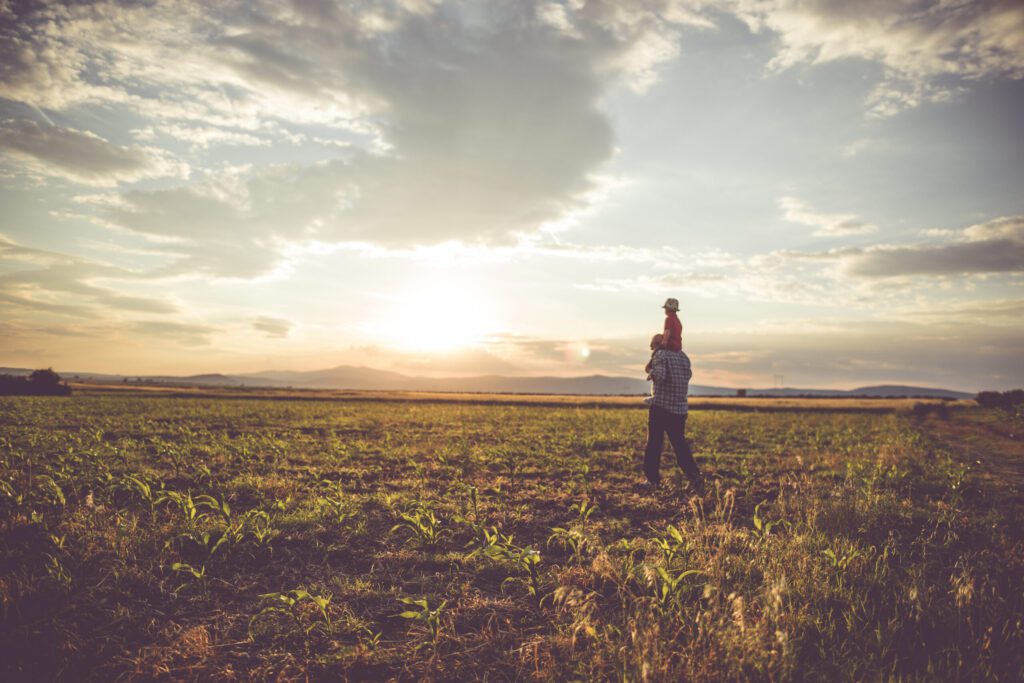Pennsylvania Researchers Join Florida in Examining Industry With $500,000 Grant
by MARY TOOTHMAN
Farmers in Florida have been expanding into adventures in agritourism in recent years, exploring new ways to bring in income and make use of their land.
But for the farming community about 1,000 miles away in Pennsylvania, it is a fairly new concept — one that will soon be explored more fully with a $500,000 research grant.
The goal of the endowment, provided by the U.S. Department of Agriculture (USDA), is to develop practical information allowing rural communities and farm owners to benefit from growing consumer interest in “on-farm” experiences.
A Penn State agricultural economist will lead a team of researchers in a three-year study of agritourism. Farmers who would like to benefit financially from agritourism will be provided with research-based information and guidance.
Diversifying farm operations into agritourism can provide farmers with a new source of income — one type of change that is always welcome. Farmers have quickly become familiar with these terms — and are learning about what they can mean in terms of the financial health of farms.
Ever-versatile when it comes to ways to continue to operate, many farmers have taken on new adventures in agritourism with gusto. Farmers have opened their property to the public for crop mazes, weddings, hayrides, school tours, and more.
Because laws can get complicated when it comes to permits and insurance, Florida created a formal definition of agritourism.
Agritourism is “any agricultural-related activity consistent with a bona-fide farm or ranch in a working forest, which allows members of the general public to view or enjoy activities related to farming, ranching, historical, cultural, or harvest-your-own attractions for recreational, entertainment, or educational purposes.”
Meanwhile, in Pennsylvania, researchers are gearing up to make good use of that grant money.
Leading the team is Claudia Schmidt, assistant professor of marketing and regional food systems in the College of Agricultural Sciences. Schmidt is part of a team of researchers from Penn State, the University of Vermont and Oklahoma State University.
“We know that agritourism can potentially help keep farms in business, but less than 1.5 percent of all U.S. farms engage in agritourism, and many report regulatory hurdles, lack of technical assistance and other barriers to entry or to expanding their operations,” Schmidt says. “Our goal is to develop a research-based resource for agritourism support organizations — such as agritourism associations, municipalities, conservation authorities, business chambers, destination marketing organizations and agritourism operators — to help them navigate these barriers.
“Agritourism usually refers to activities that attract visitors to a farm, such as pick-your-own operations, farm stays, and other educational or entertainment-based ventures. It serves as a way for farm operators to diversify their incomes,” Schmidt says.
The project will examine the laws, regulations and level of support for agritourism across the United States and compare them with a set of economic indicators. This will show why some counties are more effective at supporting agritourism enterprises. “The team also will use social network analysis to understand how agritourism operators interact with one another and support organizations,” she says.
“By studying such networks at different levels of formation or development, we expect to learn more about how they grow from loose groups of individuals into clusters functioning at intermediate levels and then high-performing and potentially world-class, branded regions, such as Napa Valley in California,” Schmidt said.
Based on the insights generated from the research, the team then will develop and pilot-test outreach materials for farmers, policymakers, agricultural lenders and insurers, and county, regional and statewide support organizations.
In addition to Schmidt, project team members from Penn State include Stephan Goetz, professor of agricultural and regional economics and director of the Northeast Regional Center for Rural Development (NERCRD); Sarah Rocker, a postdoctoral scholar at NERCRD; Suzanna Windon, assistant professor of agricultural and extension education; and Jaqueline Schweichler, attorney at the Penn State Center for Agricultural and Shale Law.
Also participating are Lisa Chase, extension professor at the University of Vermont and director of the Vermont Tourism Research Center, and Stacy Tomas, assistant professor in the School of Hospitality and Tourism Management at Oklahoma State University.
Schmidt says the grant application was connected to the Sunshine State from the start.
“The Florida Agritourism Association provided a letter of support for our grant application,” she says. “According to the most recent agricultural census, 761 agricultural operators in Florida received income from agritourism activities. Florida currently ranks seventh in terms of operator numbers.”
The project idea came about because team members found that more and more local, state and federal stakeholders were becoming interested in supporting agritourism efforts across the country, Schmidt says. “However, these efforts are currently frustrated not only by a lack of knowledge and relevant educational materials, but by gaps in state regulations and inconsistencies that create an uneven playing field for farmers that want to offer agritourism.
“Farmers who have the interpersonal and business skills needed to develop agritourism activities often face substantial regulatory hurdles, as well as varying levels of state and local support,” she says.
Stakeholders have expressed concerns that current and prospective agritourism operators lack support from their towns, local organizations, and neighbors because of limited understanding of what agritourism means, the benefits it provides to farmers and their rural communities, and how to effectively deliver producer support, she says.
“Our research project is set out to fill this gap. We will look at the laws, regulations and level of support for agritourism in each state, and compare them with a set of economic indicators, to find out why some counties are more effective at supporting agritourism enterprises.
“We will also use social network analysis to understand how agritourism operators interact with one another and supporting organizations. The project just started, and we look forward to collaborating with agritourism operators in Florida and the Florida Agritourism Association.”

